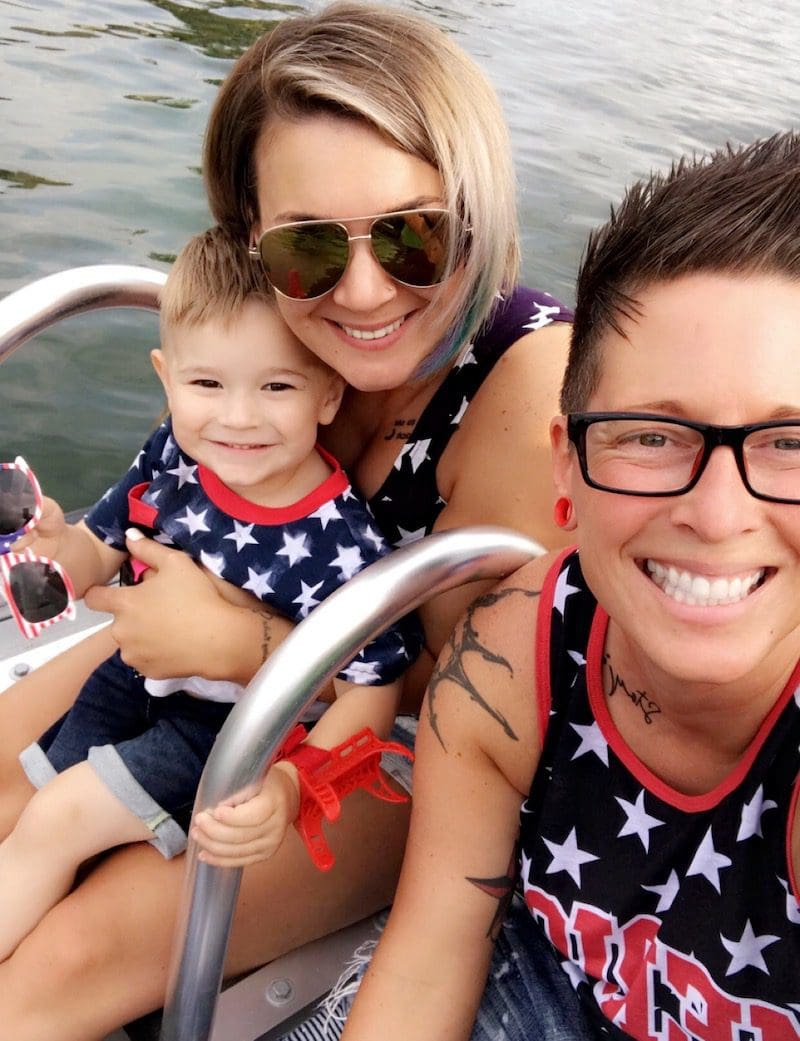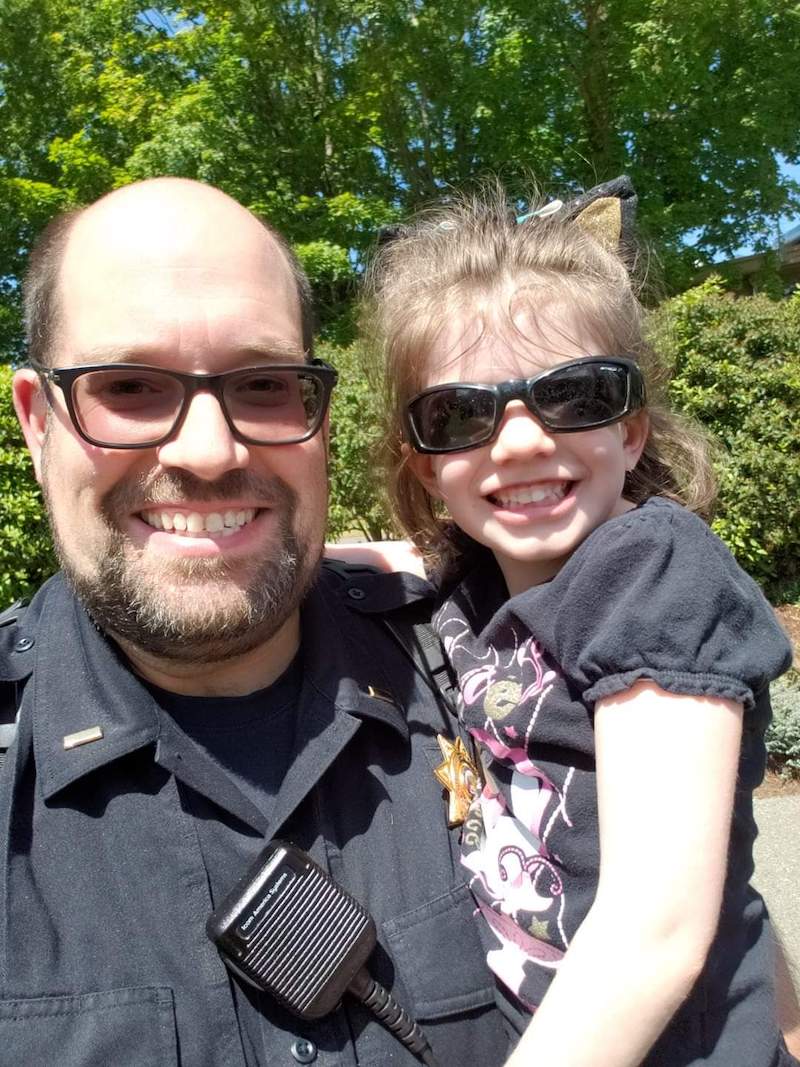Highlights | Security during COVID-19
- UW Medicine’s security teams maintain a safe environment for patients, staff and visitors.
- They enforce policy changes implemented to limit the spread of COVID-19.
- Job duties range from patrolling testing tents to escorting patients with COVID-19.
- Through it all, they have shown their empathy, customer service skills and passion for their job.
Security teams across UW Medicine’s hospitals play a crucial role in ensuring a safe, secure environment for patients, staff and visitors. When the COVID-19 outbreak began to rapidly spread in Seattle, the teams’ roles grew to support the hospitals in new ways.
Three sergeants share their experiences with the COVID-19 pandemic on the job and outside of work.
Meet Kyle Bahl: public safety sergeant, team leader and hydroplane racer
At the start of the COVID-19 outbreak, UW Medical Center – Montlake implemented several policies to limit the spread of the disease, including screening people at entrances, securing entry points and limiting patient visitors. The Department of Public Safety was essential in implementing all of these measures.
“When everything went down, our role changed pretty quickly,” says Kyle Bahl, sergeant for the Department of Public Safety at UW Medical Center – Montlake. “My team started screening people for symptoms. The first week we started doing that, the hospital hadn’t locked the entrances yet, so it was really busy.”
Then, medical staff stepped in to screen patients and visitors at entrances. Bahl’s team of security officers shifted their role to focus on the next change: securing the hospital and enforcing the updated visitor policy.
“When we locked the front doors, we brought in the UW Police Department (UWPD),” says Bahl. “It’s a high-stress time for people and we’ve had our share of run-ins with visitors who are upset because they can’t come in and see their loved ones. UWPD stepped in to work side by side with us.”
Security officers at UW Medical Center – Montlake continue to partner with the UWPD, patrolling the hospital and providing support at entrances. And, because the Department of Public Safety knows where each entrance is and how to quickly navigate the hospital, security officers also escort patients to different floors.
“We were asked to help escort COVID-19 patients from the Emergency Department to the intensive care unit,” says Bahl. “My team gowns up and shuts down hallways to get patients where they need to go. There were days when we’d do around 20 escorts a day, but fortunately that’s backed off a bit.”
Amidst the adjustments the Department of Public Safety has made to support the hospital through the COVID-19 outbreak, Bahl has done his best to maintain normalcy at home with his wife and 3-year-old daughter.
“My daughter’s day care is in-home, which we feel so lucky to have,” says Bahl. “We’re making the best of it, just hanging at home together on the weekends.”
And, when life shifts back to normal, you’ll likely find Bahl in a small go-kart sized boat, flying across the water at 60 mph.
“I race small hydroplanes,” says Bahl. “It’s an odd hobby that I’ve been doing for the last 25 years. Right now, like any other gathering, we can’t race. I’m on the national board of directors [for the American Power Boat Association] and we’re trying to figure out what it’ll look like when we can start racing again.”

Kyle Bahl racing his boat.
Meet Lisa Wilcox: security sergeant with grit and compassion
As an employee on the Security Services team at Harborview for over 17 years, Lisa Wilcox has accumulated countless stories and experiences.
“I’ve seen officers take the shoes off their feet to give to the homeless person who doesn’t have any. I’ve had officers who have given their lunches to patients who were discharged and couldn’t afford a meal,” says Wilcox, Security Services sergeant at Harborview. “There was a patient a while back who would leave to go outside and smoke, and I stopped her to tie her shoes on her way out every day.”
The COVID-19 outbreak is adding new experiences to Wilcox’s collection.
“Before COVID, Harborview was wide open,” says Wilcox. “We would see lots of foot traffic: patients, visitors and staff as well as people stepping inside to get out of the rain, or to get something to eat, or to look at the art, or to commit crimes.”
That all changed when the hospital’s visitor policy updated during the COVID-19 outbreak.
“With all the changes that occurred, we really strengthened our access control to the hospital, limiting the number of people coming in,” says Wilcox. “But now, with our visitors, there’s a different kind of stress. They’re dealing with the COVID-19 situation in their own home life, and we may have to tell them, ‘You can’t visit your loved one who was just in a car accident,’ which is really difficult. I try to put myself in their situation when I tell them that in order to support them, they need to stay at home.”
The stress caused by the pandemic is also felt across Wilcox’s team.
“Everyone on our team is facing stress at work and home,” says Wilcox. “It’s a stress I’ve never felt in my 17 years. But we still have to do our daily duties: responding to requests from medical staff to escort patients, de-escalate families who are upset, manage people who still try to enter our buildings and patrol the premises, including the three testing tents. After hours, we patrol those tents to make sure people don’t mess with the equipment or take up residence inside.”
But support from the community has helped make these challenging times manageable for the team.
“The outreach from the community has been amazing,” says Wilcox. “The amount of thanks we’ve received in the form of food, signs and people taking a moment to say thank you — it makes a difference.”
Wilcox has also found solace in her time outside of work by spending time outdoors.
“My partner and our 3-year-old, we love to go to our friend’s farm and help with the farm work and animals,” says Wilcox. “With a 5-acre farm you can be far apart. It’s been hard to see our friends, but it’s nice to still be able to get out there on the weekends.”

Lisa Wilcox, right, with her partner and son.
Meet Ryan Skiffington: public safety sergeant, community builder and longtime employee
For Sergeant Ryan Skiffington, UW Medical Center – Northwest is family.
“My mother worked here, my wife works here and my brother works here as a groundskeeper. My brother-in-law worked here as a chef, and my sister worked in endoscopy,” says Skiffington. “My kids were born here, I was born here. I’ve worked here almost 20 years.”
Those 20 years of experience helped Skiffington adjust to the change brought by the COVID-19 pandemic.
“Before the outbreak, our team’s duties consisted of basic patrol, customer service things like providing directions to people, and responding to patient-related issues,” says Skiffington. “The outbreak changed how we patrol quite a bit. Now we have an armed police officer at the COVID-19 testing tents. We also had an armed police officer in the building to supplement our presence when the visitor policy changed and we started closing down the entrances. Early on, patients were frustrated about the change in visitor policy. But after a couple days into it, we didn’t have as many issues. Patients started to understand.”
The various changes caused by the pandemic have been difficult for patients and staff alike.
“For us, emotionally it’s been hard,” says Skiffington. “Public Safety has been responsible for transporting deceased patients to the morgue. We only have two coolers in our morgue, and there were days where we were getting five or six bodies. This was part of our everyday job before this, but the sheer numbers were something my team was not used to. It gets to you.”
Through these tough moments, the Department of Public Safety has shown how their behind-the-scenes role is an incredibly important one.
“My team isn’t the type that would ring the bell and say, ‘Hey, I’m doing this,’” says Skiffington. “They just get the job done. For instance, every morning, we set up the tents for COVID testing. And at night, we take down the tents. No one complains, they just do their job.”
Skiffington’s gratitude for all his team extends across UW Medical Center – Northwest.
“The environmental services folks, the food and nutrition folks, the engineers keeping the lights on — they’re all doing a great job,” says Skiffington. “They’re neighbors, friends and family.”
While not with his work family, Skiffington spends his time with his wife and two daughters.
“When I get home, I don’t think about work,” says Skiffington. “I’m there with my wife and kids, and we try to keep things normal. I try to remind myself that there will be an end to this, and that it’s going to be OK.”

Ryan Skiffington with his daughter.


